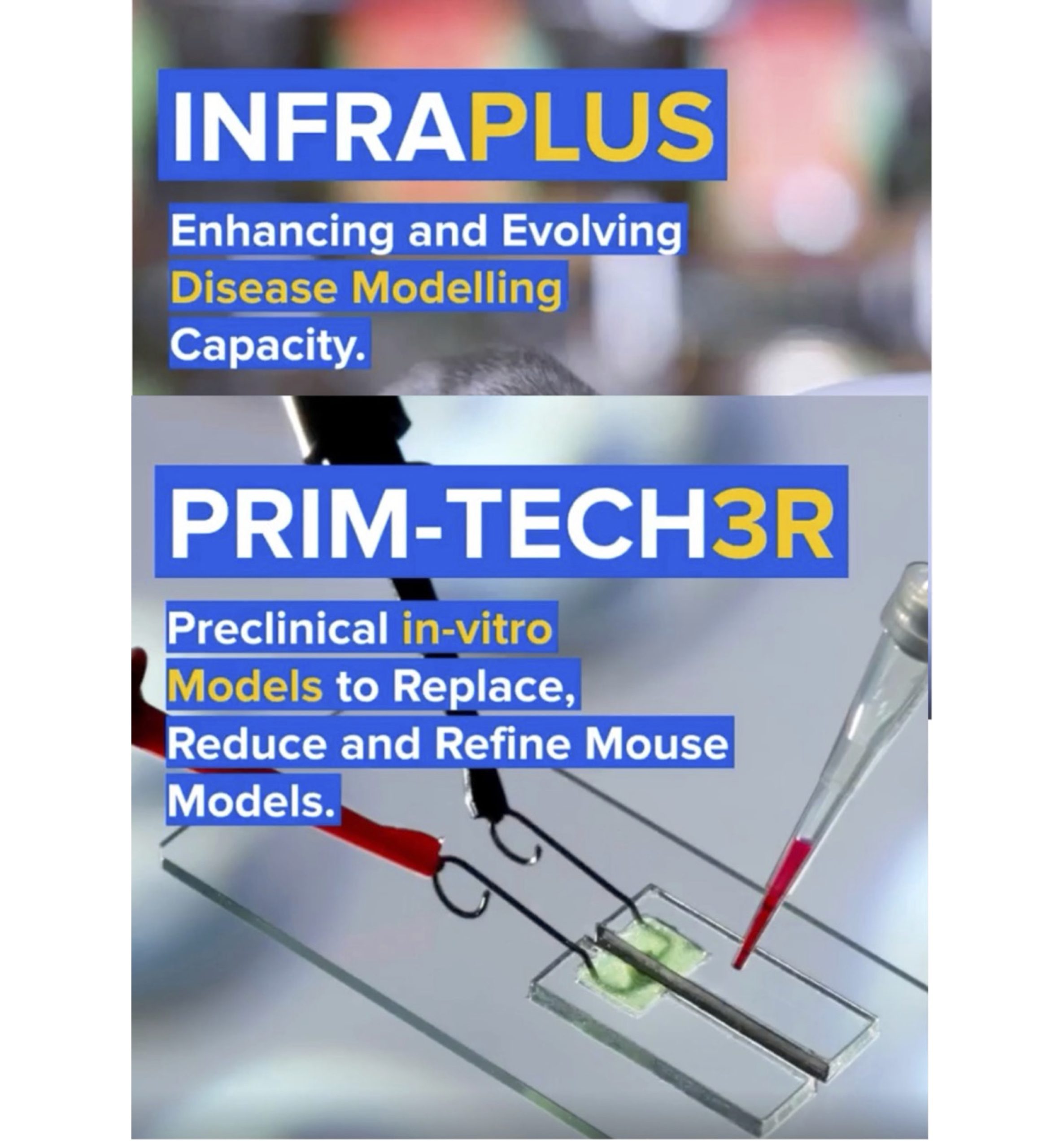


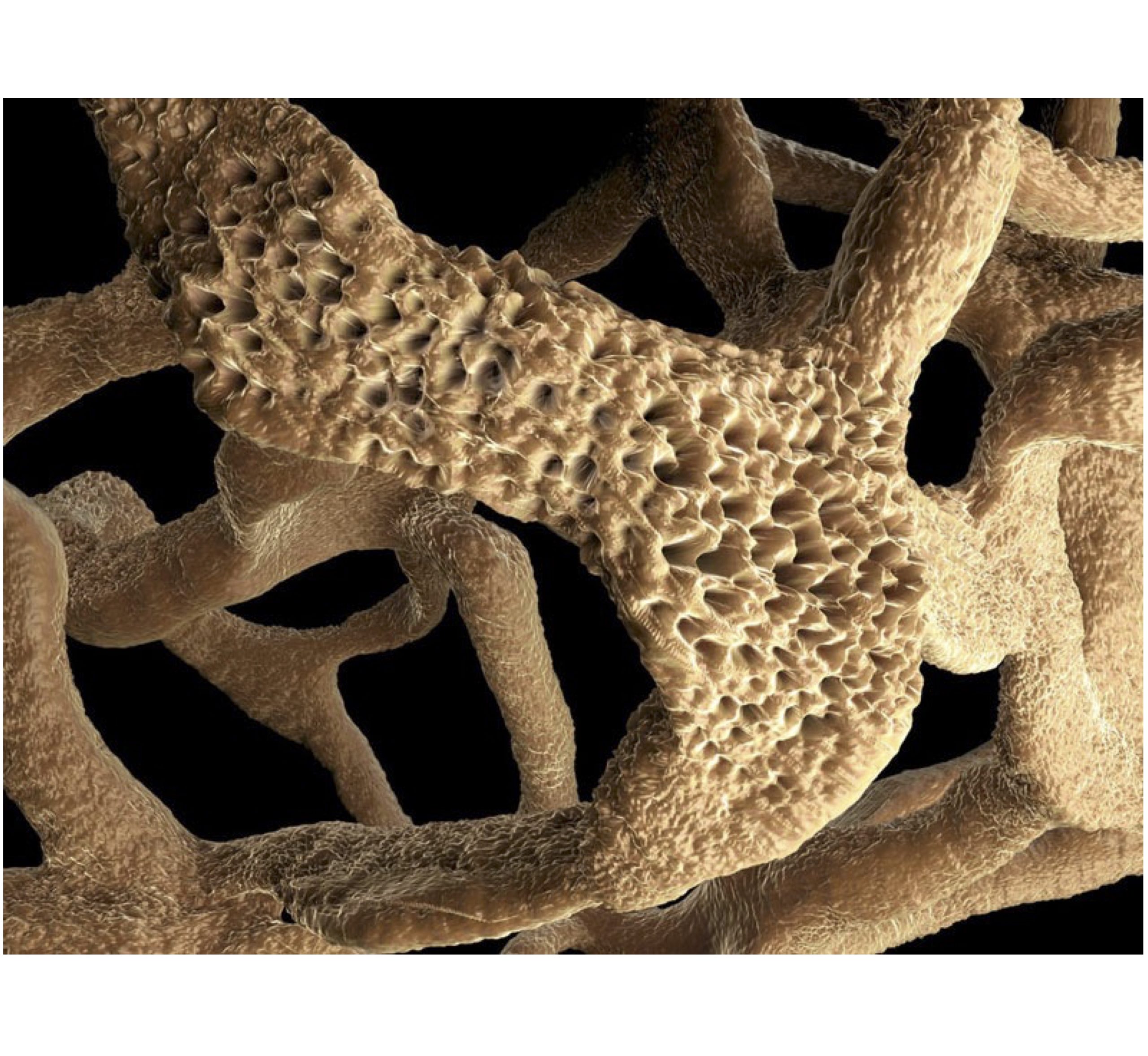
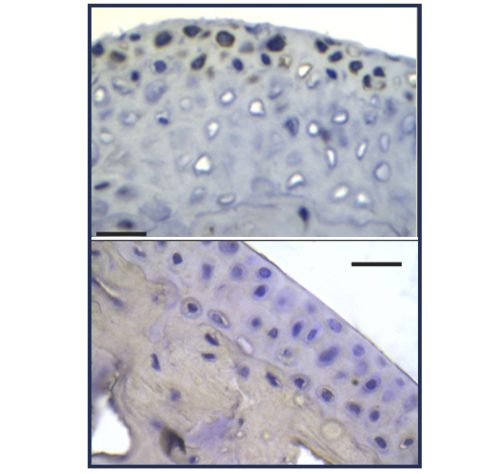
Extending on our previous work on the treatment of arthritis with combination therapies of dasatinib with subtherapeutic doses of anti-TNF biologics, we explore here in this collaborative research project the interplay of inflammation and senescence in the context of combination treatments.
Published in Mechanisms of Ageing and Development 2023, 214, 111856.
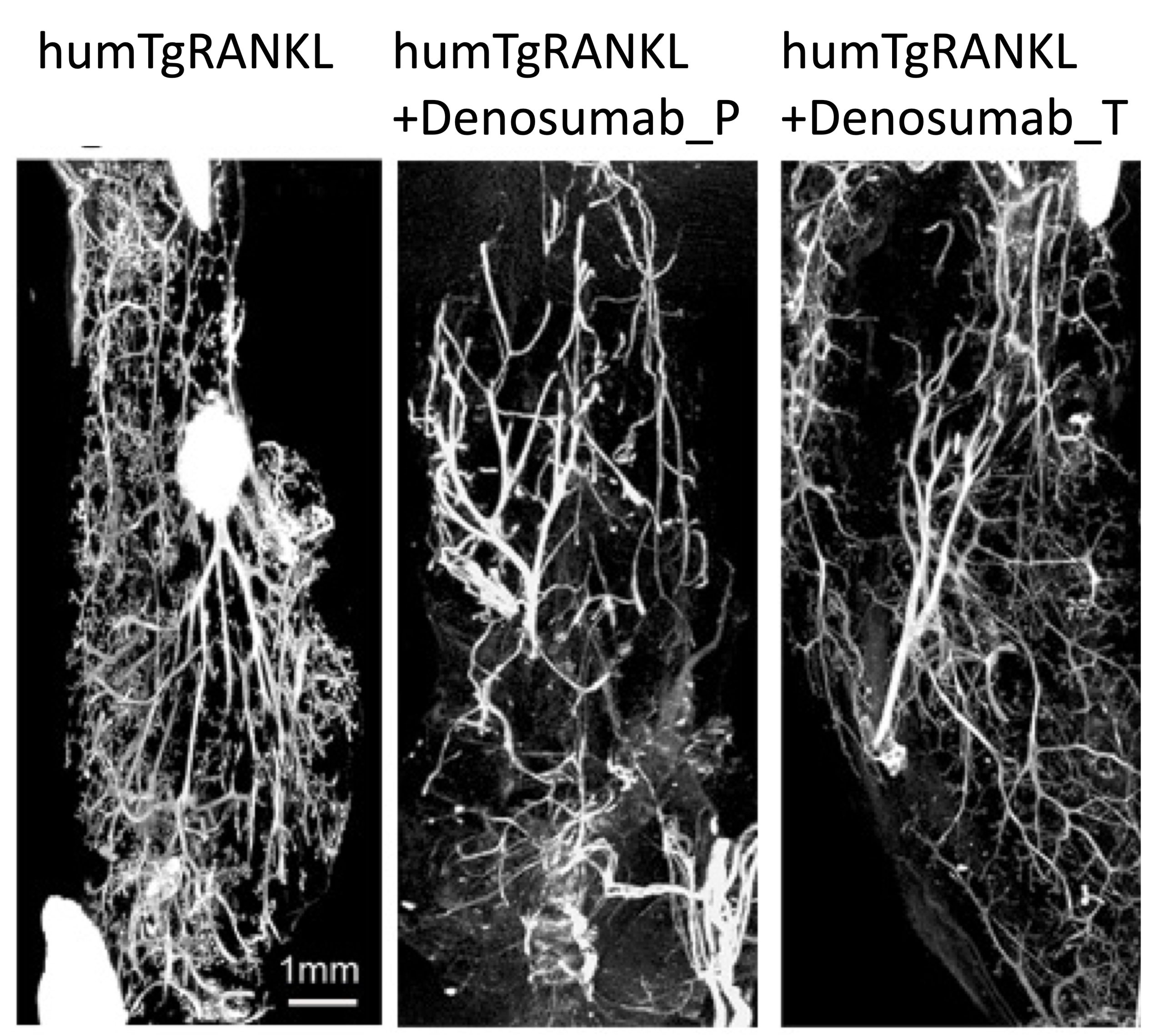
In the frame of a collaborative project co-financed by the European Union and Greek national funds (BreastCaRANKL project code: T1EDK-02829), Biomedcode has collaborated with Dr. Douni’s lab at BSRC Al. Fleming and the companies Bioemtech and Protavio to develop an innovative human-RANKL dependent breast cancer mouse model aiming to study RANKL dependent breast cancer mechanisms and to establish novel integrated preclinical platforms with modules of advanced imaging and molecular analysis for the evaluation of human therapeutics targeting cancer.
Published in Cancers 2023, 15(15), 4006.
Read More
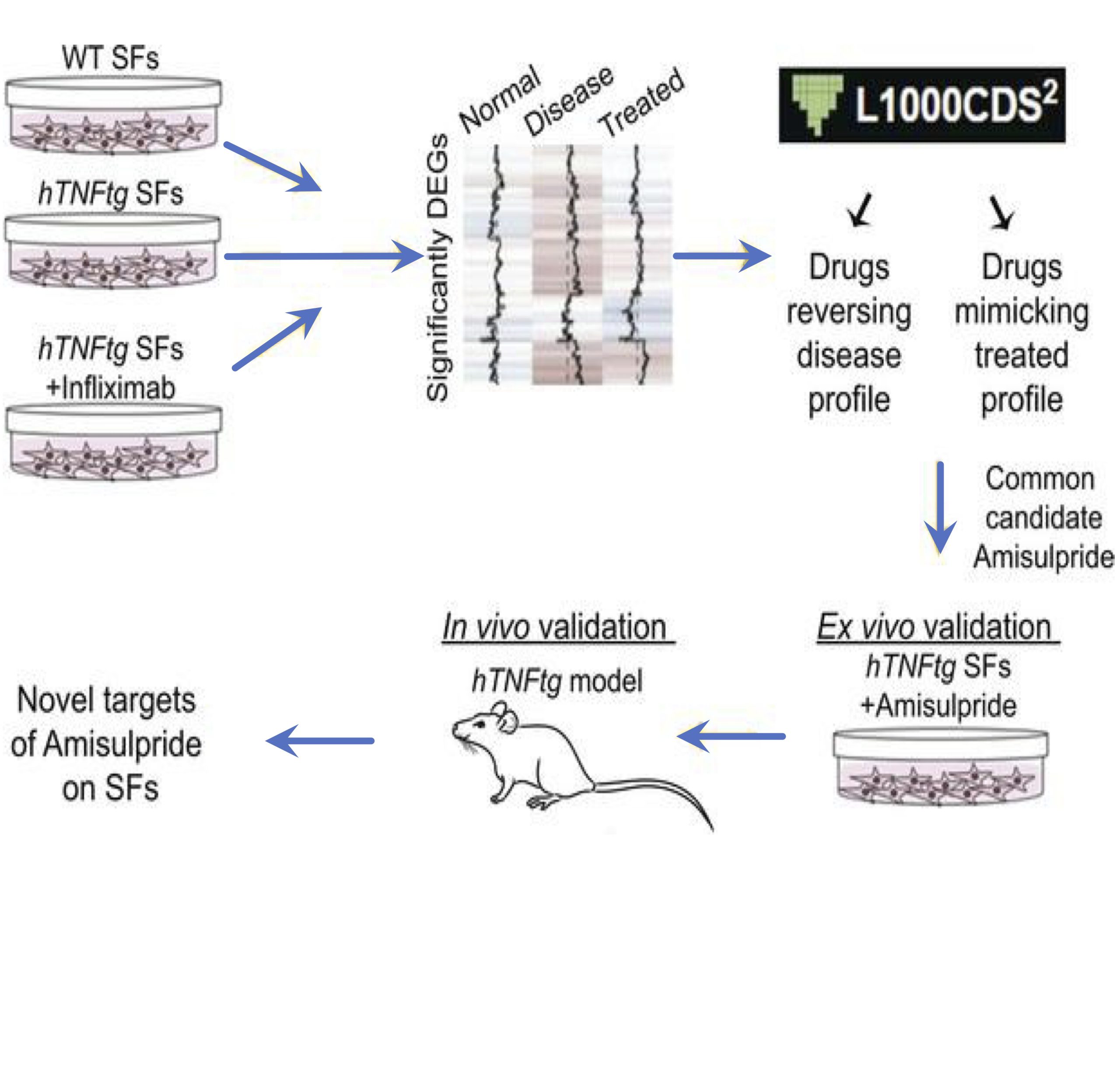
In the frame of a collaborative drug development project scientists from Biomedcode and BSRC Al. Fleming using bioinformatics tools, have repurposed the neuroleptic drug amisulpride for the reversal of the pathogenic expression signature of synovial fibroblasts and the treatment of arthritis pathology.
Published in JCI Insight 2023 May 8;8(9):e165024. doi: 10.1172/jci.insight.165024.
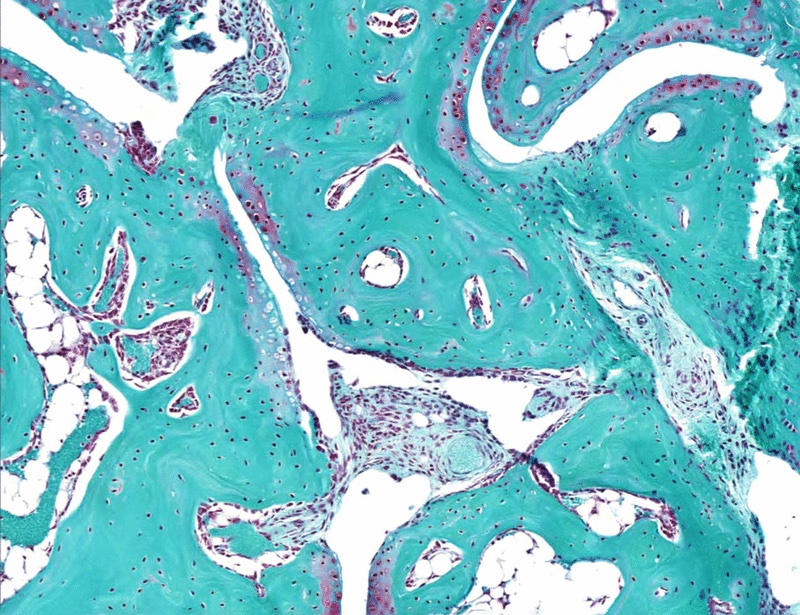
In this paper the anti-TNF/IL6 bispecific nanobody is tested on the Tg197 arthritis model.
Published in Science Translational Medicine 2023 Feb;15(681):eabq4419. doi: 10.1126/scitranslmed.abq4419.
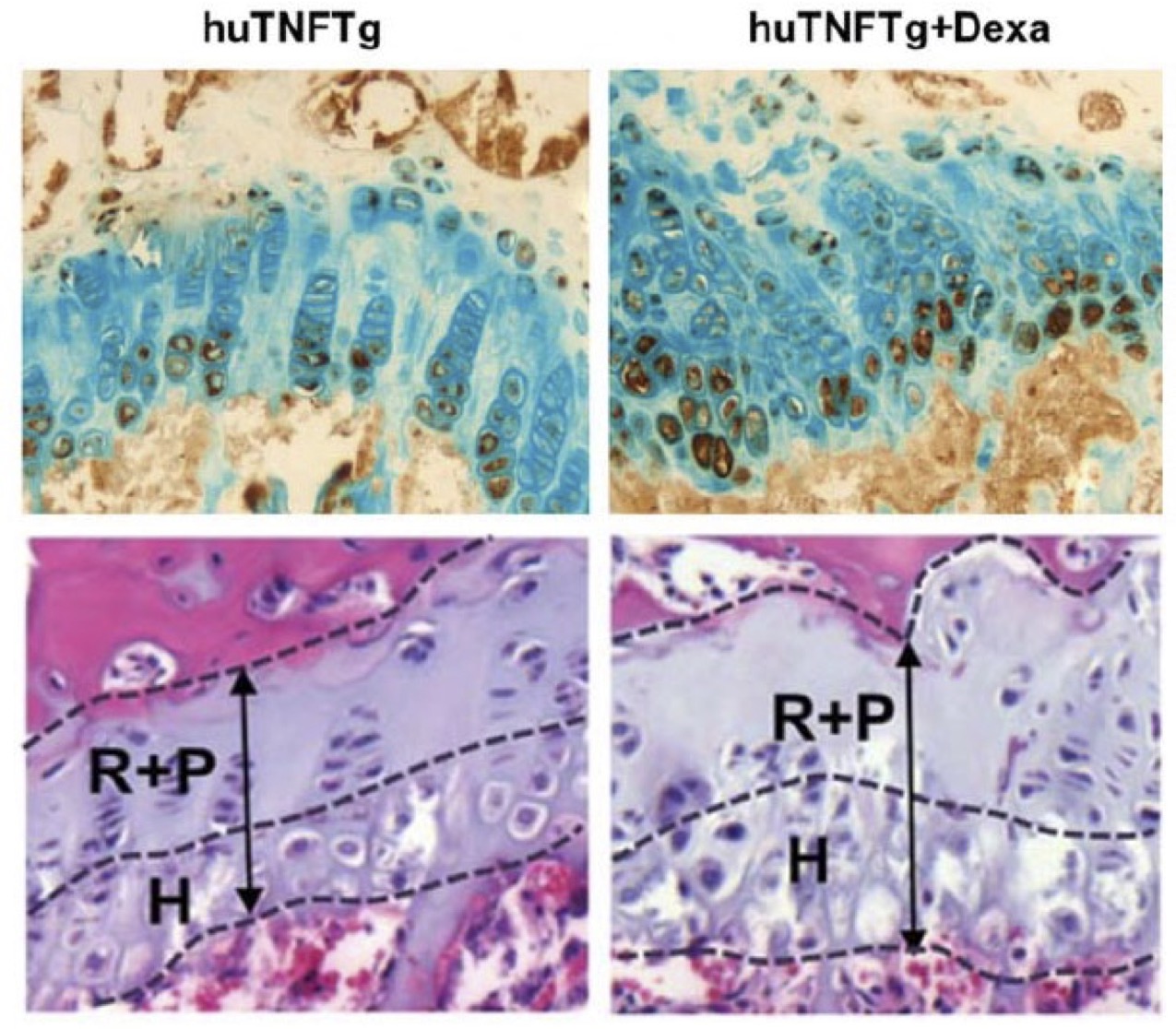
Published in Scientific Reports 2022 Oct 28;12(1):18189. doi: 10.1038/s41598-022-22734-8
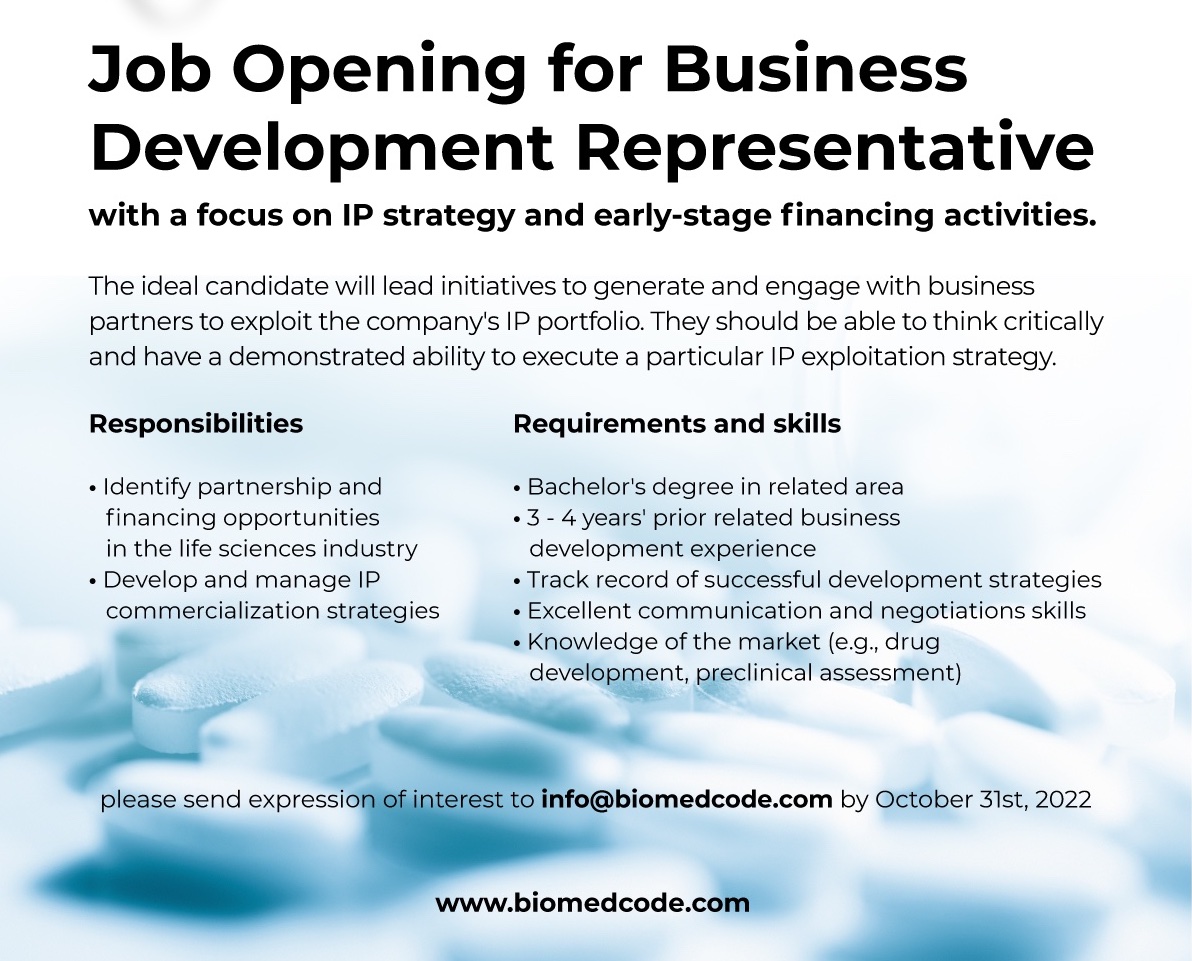
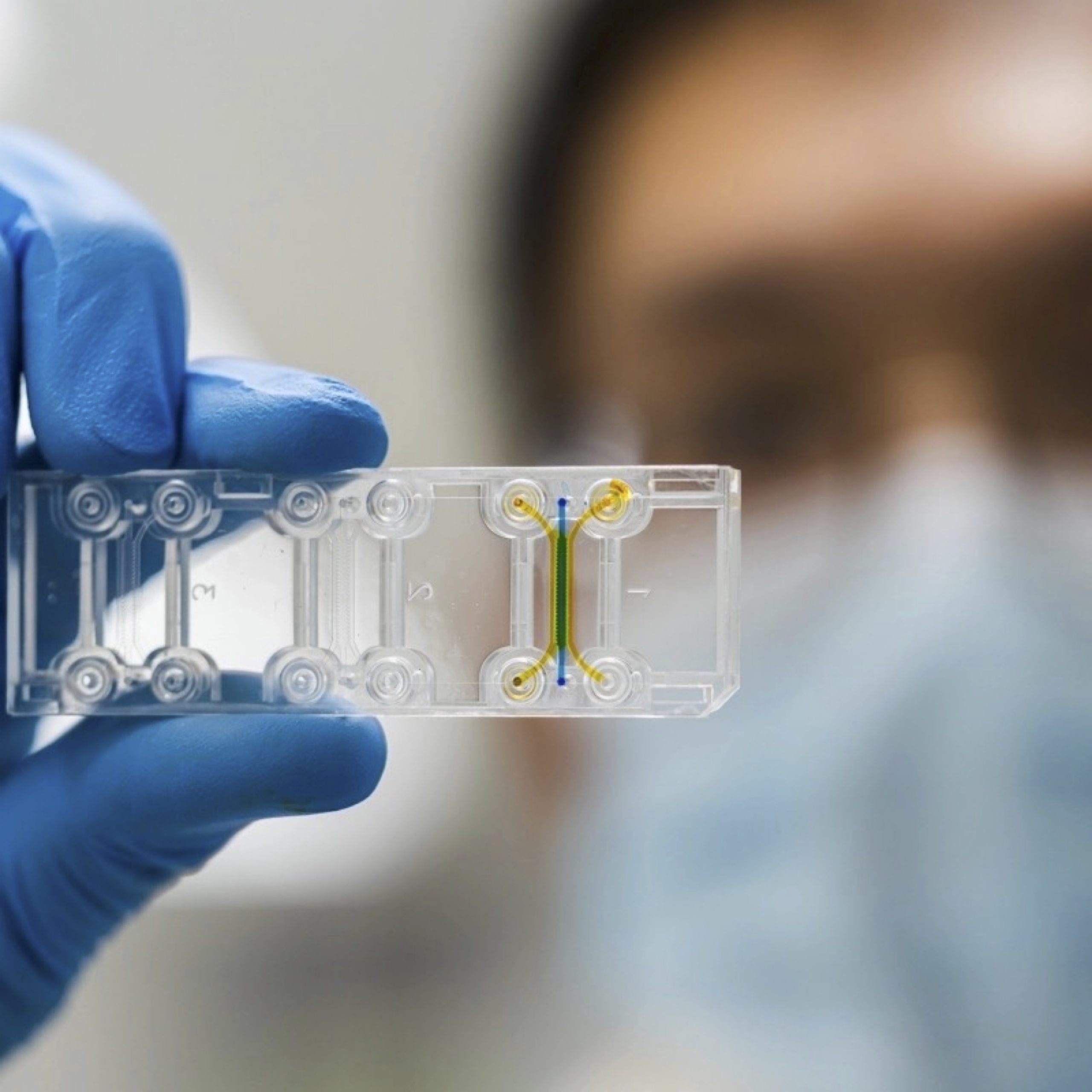
Biomedcode is pleased to announce that, the T2EDK program -development of a bronchoscopic biopsies-on-chip (BioOnChip) platform for immunotherapy drug screening in non-small cell lung cancer- initiated in collaboration with the BSRC Al. Fleming researcher M. Tsoumakidou, the Department of Computer Science and Biomedical Informatics of the University of Thessaly and the Pulmonary Clinic of the University of Ioannina has been financed by the European Union – Next Generation EU and the National Recovery and Resilience Plan Greece 2.0 funds. BioOnChip aims to explore the applicability of an innovative 3D microfluidic microculture, i.e. tumor-on-chip, in predicting real-time responses to PD1-blockade in NSCLC patients, that, if efficient, might have important socioeconomic impact.


INFRAFRONTIER has achieved two major milestones in the first half of 2024, with two collaborative projects being funded by the European Commission INFRAPLUS and PRIMTECH3R
Biomedcode participates in both projects together with other partners and collaborators:
Helmholtz Munich – ERA-LEARN – Institut Clinique De La Souris ICS – CIPHE – Centre d’Immunophénomique – University of Oulu – Karolinska Institutet – CSIC – Centro Nacional de Biotecnología (CNB-CSIC) – Consiglio Nazionale delle Ricerche – Vetmeduni – BSRC Alexander Fleming – Universitat Autònoma de Barcelona – UK Research and Innovation – Mary Lyon Centre at MRC Harwell – MRC National Mouse Genetics Network – Biomedcode – AKITA, by Finnadvance – CNRS – Calouste Gulbenkian Foundation Instituto Gulbenkian de Ciencia – The Netherlands Cancer Institute – Antoni van Leeuwenhoek – The Hospital for Sick Children – Institute of Molecular Genetics of the Czech Academy of Sciences – Czech Centre for Phenogenomics – UMCG research – EMBL – INSERM and Aarhus University